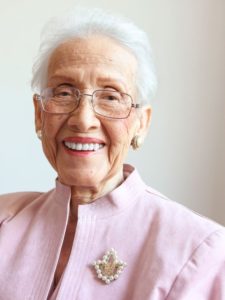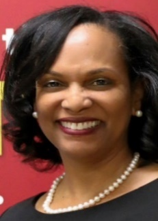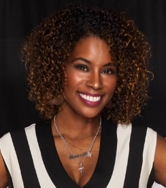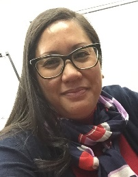– by Dr. Jalin B. Johnson

American mathematician Katherine Coleman Goble Johnson (August 1918 – February 2020), changed history as one of the first women to work at NASA as a scientist. Like many women (of her own and subsequent generations) in STEM fields, Johnson helped to create a space for many underrepresented and minoritized groups that succeeded her.
In the United States, representation within the fields of Science, Technology, Engineering and Mathematics (STEM) are monitored by groups including the National Girls Project (NGP), Catalyst and others.
When examining the STEM workforce, it has been noted that “women remain underrepresented in the science and engineering workforce, although to a lesser degree than in the past, with the greatest disparities occurring in engineering, computer science, and the physical sciences (NSF, Science & Engineering Indicators, 2018). Additionally, according to NGP, women make up half of the total U.S. college-educated workforce, but only 28% of the science and engineering workforce. Likewise, female scientists and engineers are concentrated in different occupations than are men… (National Girls Collaborative Project, 2020).
While ‘Looking at Leadership,’ I spoke with Dr. Cherilynne Hollowell, Natalie V. Nagthall & Andrea M. Stoll. Each of these women are helping to educate our future trailblazers. Here, they celebrate their own connection to the work of Johnson and other STEM pioneers.
 And they told us “Black Girls don’t do Math”
And they told us “Black Girls don’t do Math”
At a time in American history when African American women stood at the intersection of two prevailing and predominant systems of oppression, namely race and gender, Katherine Johnson epitomized the significant reality that Black girls not only do math, they also do physics and they code. According to Black Girls Do Stem, the number one indicator for a girl to be interested in science is having a role model who is/was a female scientist. As jobs of the future and a continuous movement toward a global economy require an increasingly high demand for persons with knowledge in STEM fields, the reality is that there are not enough Black girls enrolled in higher level math or science courses at the high school and postsecondary levels to fill those positions often because they lack role models and exposure (The National Assessment of Educational Progress (NAEP), 2017).
The release of the motion picture Hidden Figures (2016,) gave Black girls everywhere, superheroes that look like them, thus changing the trajectory of education and the mindset for young girls of color that may have felt anxious or inadequate in their efforts to succeed in mathematics and science. In addressing the challenge that Black girls face in pursuing careers in STEM fields, it is critical to present a historical counter-narrative that countless WOC, specifically Black women, have received advanced degrees in mathematics from prestigious universities and have published in peer reviewed journals, along with working in these fields. Women including Dr. Sadie Gasaway, Dr. Lillian K. Bradley, Dr. Genevieve Knight, Dr. Gloria Gilmer, Dr. Kate Okikiolu, Dr. Evelyn Boyd Granville, and Dr. Marjorie Lee Browne, have done so against insurmountable odds. The requisite empowerment for young girls and teenagers of color that will change the narrative which suggests that “Black girls don’t do math” lies in allowing them to see themselves in schools in the form of Black female math and science teachers and in presenting and providing opportunities for them to be exposed to and to “do” STEM. As an educator dedicated to encouraging students to reach for the stars, literally and figuratively, I look forward to the development and exposure of present-day “not-so hidden” figures.
 A Diversified STEM Workforce will Yield to Adequate Representation
A Diversified STEM Workforce will Yield to Adequate Representation
On the heels of Black History Month, the world of STEM lost a giant in the field. Ms. Katherine Goble Johnson was a pioneer in this arena as were many in our nation’s history. The contributions of women especially women of color (WOC) in STEM are multitudinous with pioneers such as Dr. Glady West whose work in mathematics paved the way to the invention of the Global Positioning System (GPS). Likewise, Dr. Shirley Jackson who developed the technology that led to the creation of caller ID and call waiting, and Dr. Patricia Bath, inventor of a laser cataract treatment device known as a Laserphaco Probe, led with innovation. While the contributions of WOC’s have left an indelible mark on our society, there is a growing concern that these contributions will be halted due to lack of representation.
Even though there has been an increased focus in diversifying the STEM workforce, there still remains a dearth of adequate representation, especially by WOC. In order for our society to be able to compete on a global level, it is important to make the necessary investments in building and diversifying the STEM capacity pipeline. This cannot be overlooked as our contributions in this area can only mean great things for how we are able to compete as a country thereby ensuring our economic growth. If our nation is not cultivating a diversified STEM workforce, this will inevitably lead to huge untapped talent pool. To stimulate this growth, it is also important for young WOC who are considering pursuing STEM as their profession, see representation of themselves so that they can feel a sense of belonging and confident in their abilities to be successful. Historically, there have been numerous contributions by WOC in STEM and it is the hope that our nation will continue on this trajectory for years to come.
 Always Focus on the Passion that Drives Us
Always Focus on the Passion that Drives Us
“We will always have STEM with us. Some things will drop out of the public eye and will go away, but there will always be science, engineering and technology. And there will always, always be mathematics. Everything is physics and math.” Katherine Johnson
While Kathrine Johnson’s life achievements highlighted and eventually, promoted the necessity of STEM, she made a truthful, yet simplistic statement needed for all, “everything is physics and math.” Many articles chronicling her life relay one important factor of her life’s success: her passion for mathematics. History has chronicled many barriers to entry into the accounting & finance professions. These challenges called upon women of color (WOC) like Johnson, to stand strong and work harder than their male counterparts. In 1943, Mary T. Washington became the first African American women to obtain her CPA license, while starting her own accounting firm, from her basement. There, she founded Washington, Pittman & McKeever (1968), which remains one of the largest, African American owned CPA firms to this day.
Women like Johnson and Washington remind us, in STEM careers and across professions, that we should always focus on the “passion” that drives us. By only focusing on the challenges and obstacles we face, we may miss the importance of these accomplishments. Johnson focused on being the best, asking the tough questions, taking her tasks beyond the assignment and making herself audible, during a time when the voices of women (and particularly WOC), were not always heard. The obstacles that women face, will always be present; but if we focus, with intent and passion, we will emulate and replicate the life and legacy of women like Johnson. This passion will continue to be my driving force, encouraging me to be the best I can be.

 Find Dr. Jalin B. Johnson at DrJalin.com
Find Dr. Jalin B. Johnson at DrJalin.com